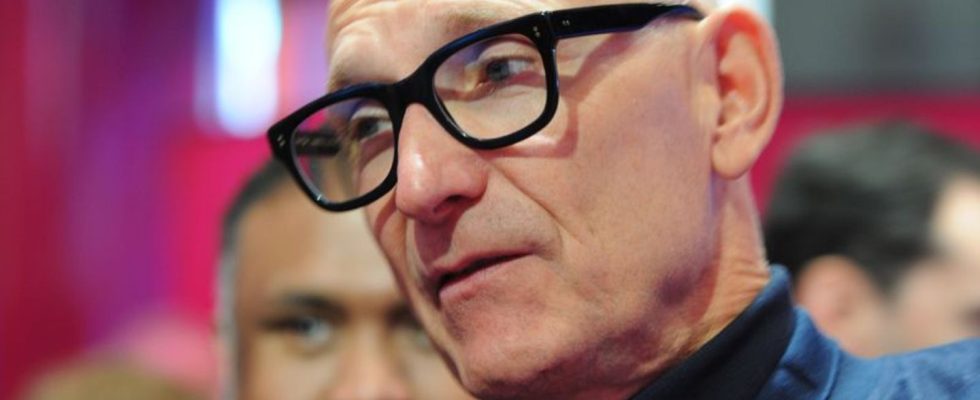Mobile World Congress
Is the USA pulling away? Cell phone companies are demanding support
Telekom boss Tim Höttges at the Mobile World Congress (MWC) mobile communications trade fair. photo
© Wolf von Dewitz/dpa
Streaming is firmly anchored in the digital age, whether YouTube or Netflix. US corporations make good money with it. Europe’s network operators, whose networks transmit the data, want a piece of the pie.
In view of the USA’s great lead in digitalization, demand Europe’s major mobile phone companies are changing policy course. Compared to the USA and its technology giants, we are “a dwarf,” said Telekom boss Tim Höttges at the Mobile World Congress (MWC) in Barcelona. There he appeared alongside his counterparts from Europe’s other major telecommunications providers, namely Vodafone from Great Britain, Telefónica from Spain and Orange from France.
While the telecommunications industry in Europe invests 109 euros per inhabitant annually in expanding the digital infrastructure, in the USA it is the equivalent of 240 euros. “We have a serious problem,” said Höttges.
The world was “ok” until 2016, said the Magenta manager. After that, however, the USA moved away and data traffic in Europe’s networks “exploded”. The Telekom boss alluded to the well-known criticism of the European telecommunications industry, according to which US technology giants such as Google with the video platform YouTube, Meta (Facebook, Instagram) and Netflix are responsible for a large part of the data traffic on Europe’s networks, but do not make any money for it pay. In this debate, Internet companies argue that their offerings make it interesting for consumers to use telecommunications services in the first place.
Fair participation required
European telecommunications managers have long been campaigning for what they see as a fair share for the “Big Techs”, but have so far been unsuccessful. A year ago there was the impression that the EU Commission was reacting and that there could be legislation in this regard, but that has not happened yet. The fact that the four CEOs are now taking to the same stage together – according to them for the first time ever – and making a joint appeal to politicians is remarkable.
The heads of the four European telecommunications providers see the reason for the comparatively low investments in Europe in adverse conditions and a fragmented market that is far removed from a true internal market. Most domestic telecommunications companies don’t even earn back the capital invested, complains Höttges.
According to him, there are 45 telecommunications companies in Europe – from Höttges’ point of view, that is far too many; there are significantly fewer in the USA or Asia. Strict antitrust rules in different countries made the necessary market consolidation more difficult. The competition is so tough that companies don’t earn enough money for the necessary investments, said the Telekom boss.
“More connectivity and more innovation”
“We need a new regulatory framework,” demands Telefónica boss José María Álvarez-Pallete. “We are driving digital change, but it is not enough,” says Vodafone boss Margherita della Valle and calls for better investment opportunities to strengthen Europe as a digital location in global competition. “We are now in the industrial internet era where you need more connectivity and more innovation.”
As a network operator you are ready, but you need support from politicians. “We need a new deal,” said della Valle. She cites “spectrum security” as an example: Instead of the usual expensive auctions, companies should be able to plan with certainty what the radio spectrum will cost. In addition, US companies should not be given any advantages.
The EU Commission recently published a strategy paper on digital infrastructure in which the “fair share” issue does not play a central role. However, measures should be taken to remove obstacles to a genuine internal market. With their appearance in Barcelona on Monday, the four European CEOs made it clear that the EU Commission’s current approach was not enough for them.

